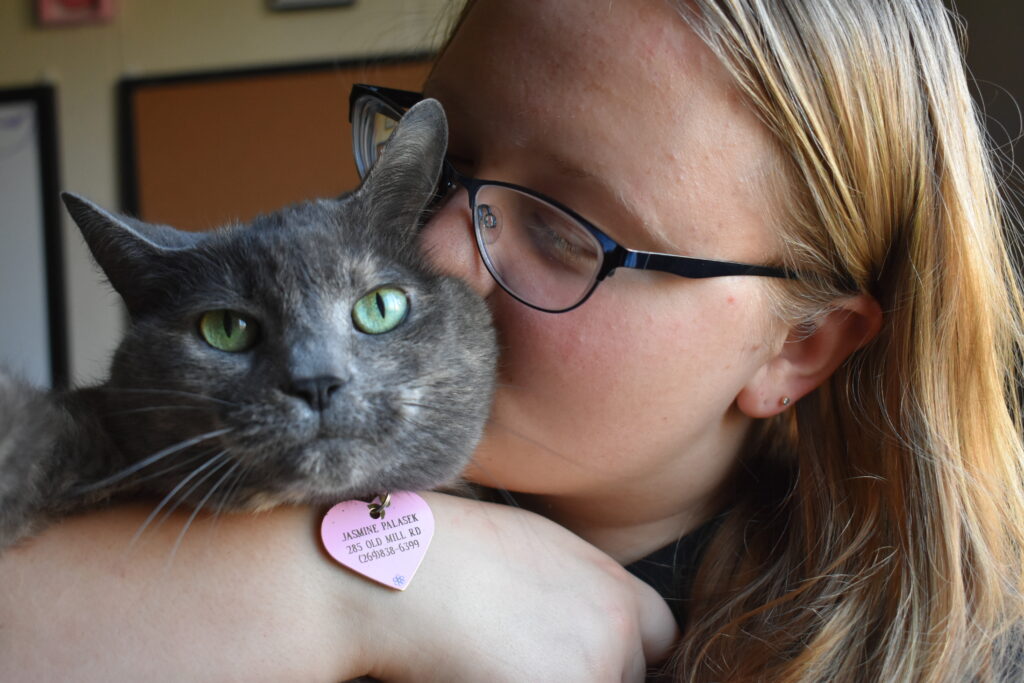
For students who keep emotional support animals on campus, there is an extra companion for them to turn to when their emotions can be too much, but there is also the responsibility of keeping a living creature in a dorm room.
Taking care of an animal on its own is a huge responsibility and college students keeping animals take on that responsibility while also having to be aware of their duties as a student and sometimes an employee as well.
The level of care an animal needs depends on what kind of animal it is. Students who keep birds or reptiles as emotional support animals may have an easier time since the most basic needs of their animal could be taken care of in their enclosures. Cats and dogs may be more difficult due to the fact that they need more room than just a cage.
Cats need to have a litterbox that needs to be maintained, meanwhile, students with dogs need to be able to take them outside to use the bathroom, something that can’t be done when they’re sitting in class or at work. Students need to be conscious of the fact that there is an animal in their room at all times.
Cami Lowe lives in the dorms with her cat Finn. For her, keeping an animal isn’t too hard to do in the dorms.
“I think that having a cat is super simple. Finn is a very happy guy; he naps while I’m in class and is ready to play by the time I get home in the afternoon. There are times when I work odd shifts that I can tell he get annoyed, but overall, he is content to be alone or spend time with my suitemate when I’m unavailable,” Lowe said.
Even though having a cat is simple for Lowe, she still keeps aware of the fact that Finn is in her room constantly.
“I don’t spend the night anywhere else because Finn gets anxious when I’m gone, and I don’t go home often because he hates being in the car. However, I wouldn’t trade having Finn here for anything, having the little guy that excited to see me every time I come home makes my day,” she said.
Students also have the responsibility of making sure their emotional support animal is registered with the school, which requires fillling out paperwork with Disabilities Services, and making sure they’re up to date on vaccinations for animals.
“The paperwork was super simple, from starting to fill out the paperwork to moving him in it only took about a week. The people at the Educational Counseling and Disabilities Services were so helpful!,” said Lowe.
Even though Cami and Finn’s experience has been relatively good, Cami would still be hesitant to recommend other students get an emotional support animal.
“I have mixed feelings about recommending ESAs to other students. For one, I think that having a cat is totally different from having a dog,” Lowe said. “Finn doesn’t need to go on walks or taken outside as a dog would. I would never be able to handle a dog, or another high maintenance animal, with my classes and work schedule and I think that’s an important thing to consider.”
For students that are planning on bringing an emotional support animal to campus, Lowe said she would “advise others to really evaluate their lifestyle before committing to bringing an animal onto campus.”
“As much as one might enjoy having a pet it’s important to remember that while you have a life outside your room, your pet doesn’t, so you must be willing and able to give them the love and attention they deserve,” said Lowe.
If students are willing to take on the responsibility of bringing an emotional support animal to campus, they can begin the process by contacting Education and Career Counseling and Disabilities Services. They can be reached by email at ECDS@nullferris.edu and by phone at (231) 591-3057.
